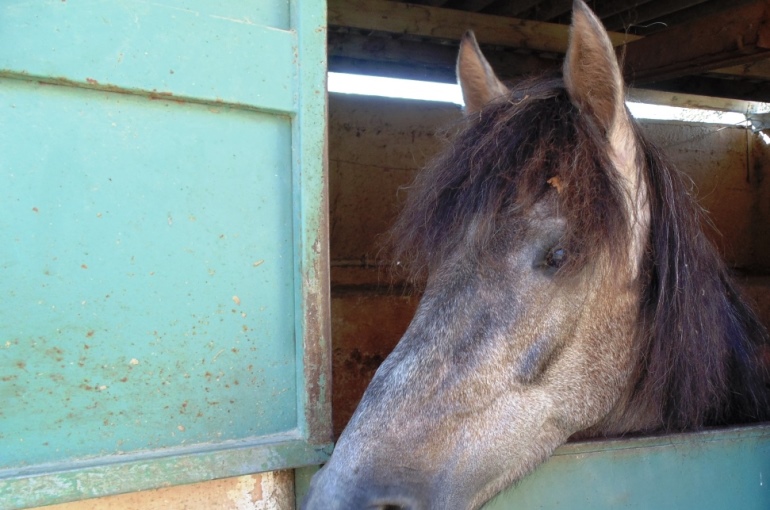Q&As Horses

This post is also available in:
This post is also available in:
![]() Español (Spanish)
Español (Spanish) ![]() Français (French)
Français (French) ![]() Deutsch (German)
Deutsch (German) ![]() Nederlands (Dutch)
Nederlands (Dutch) ![]() हिन्दी (Hindi)
हिन्दी (Hindi) ![]() العربية (Arabic)
العربية (Arabic) ![]() Türkçe (Turkish)
Türkçe (Turkish) ![]() 简体中文 (Chinese (Simplified))
简体中文 (Chinese (Simplified)) ![]() Русский (Russian)
Русский (Russian) ![]() Italiano (Italian)
Italiano (Italian) ![]() Ελληνικά (Greek)
Ελληνικά (Greek) ![]() Português (Portuguese (Brazil))
Português (Portuguese (Brazil)) ![]() Tiếng Việt (Vietnamese)
Tiếng Việt (Vietnamese) ![]() Indonesia (Indonesian)
Indonesia (Indonesian) ![]() 한국어 (Korean)
한국어 (Korean) ![]() polski (Polish)
polski (Polish)
Are horses herd animals?
Yes they are. Horses are very social animals that prefer to live in a herd. There are of course numerous farmers claiming that they have raised just one horse without any other company, and this horse lived happily without problems. However, if you have the ability, you can start your horse farm by purchasing at least two horses and/or other companion animals (goats, sheep and well behaved dogs).
Are horses carnivores, herbivores or omnivores?
Horses are herbivores.
Are horses warm-blooded? What is the normal temperature of horse?
99.0–100.8 °F (37,2-38,2 °C)
Are horses ruminants?
No, horses are monogastric herbivores.
Are horses monogamous?
No, definitely not. Many people have heard that seahorses are monogamous and they get confused. Some species of seahorse, a small fish in the genus of Hippocampus, are indeed monogamous. But as far as horses are concerned, in the wild a stallion (male horse) instinctively tries to mate with all mares of the herd, something that results in fights between stallions. On the other hand, mares (female horses) like to mate with the most powerful stallion of the herd. If another more powerful stallion fights and “dethrones” him, mares forget easily the old boss and are willing to mate with the new guy.
Do horses sleep standing up?
Yes they do. In that way, they remain alert for predators even when asleep. Mother Nature has armed horses with “stay apparatus”, a mechanism through which muscles and tendons lock, letting the animal stand up without muscle effort. Stay apparatus is extremely useful for zebras, wild horses and elephants, because these animals –when falling asleep in a standing position- can escape a predator attack more quickly and easily. However, horses sleep lying down as well.
Do horses eat meat?
Many farmers report that they often offer meat to their horses and they look healthy and thriving. According to them, horses also seem to digest meat without any problem. However, it is a waste of resources, since horse is herbivore and can live well and stay healthy without ever eating meat.
Do horses need vaccinations every year?
Horse owners should definitely consult a local veterinarian at least once a year and discuss about the need for vaccination. The licensed veterinarian will review the horse’s age, physical condition, local and universal risks associated with many factors and he/she will decide responsibly. Read more on vaccination
Do horses and goats get along?
Yes they do. Horses can live in harmony with goats as long as they eat separately. After some time, goats bond with horses. Goats often seek protection, running and hiding behind horses when they feel threatened. There are of course cases in which horses kicked and injured goats, but the great majority of farmers have no problem from this cohabitation.
Do horses really need shoes (since wild horses don’t need them to survive)?
Humans also survived through hundreds of centuries without wearing shoes. This doesn’t mean that nowadays wearing shoes is a luxury or a waste of money. Survival is different from well-being. The average lifespan of a wild horse is much shorter than the average lifespan of a domesticated well cared horse. So, if you do care for your horse, you can at least ask your local vet on whether your horse really needs shoes. Horses that wear shoes are protected from stepping on rocks or uneven surfaces, hooves splitting and various other injuries. You can consult your local licensed veterinarian.
Do you have a question regarding horses? Please share your question in the comments below. We will make our best to answer as soon as possible.
5.) Health Safety and Care of Horses
6.) Horse Waste & Manure Management
7.) Q&A Horses
Do you have experience in raising horses? Please share your experience, methods and practices in the comments below. All the content you add will be soon reviewed by our agronomists. Once approved, it will be added to Wikifarmer.com and it will influence positively thousands of new and experienced farmers across the world.









































































